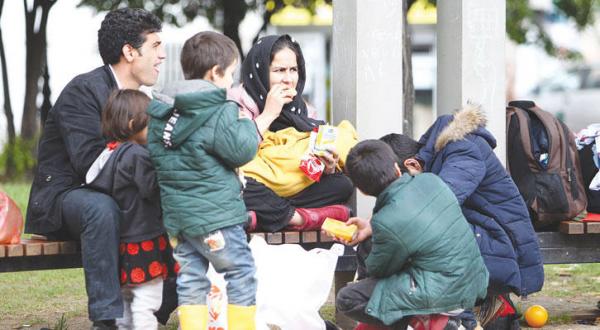Brussels-The European Parliament in Brussels said that a delegation, including MPs from Budgets Committee have kicked off their visit to Lebanon and Jordan on Monday that will end on Thursday.
The visit aims at reporting on EU funding for both countries to help them cope with the refugee crisis and foster development cooperation and European Parliament support for UNRWA.
“The visit helps the MPs assess the needs of these refugees and prepare for the coming talks with federal institutions regarding the European Union’s budget for 2017 while take these needs into consideration,” sources from the European Parliament told Asharq Al-Awsat.
Last week, MPs from the European Parliament said there are more than two million Syrian refugees in Jordan and Lebanon, amounting between 10 to 30 percent of the total population of the two countries.
They explained that many of the pledges taken at London Conference on Syria, which was held in February, have not been fulfilled yet due to funding shortages; which means that Syrian refugees in Lebanon and Syria are living below the UN’s poverty line.
“The generosity of these communities is high but this might not be enough. If we fail to help them, they could become the refugees of tomorrow,” commented S&D MEP and vice-president for foreign affairs, Victor Bostinaru.
“Jordan sets an example with its important efforts towards democracy and Lebanon is a stable, but yet fragile state and both are surrounded by many threats. It is essential to support their economic and social resilience in these difficult times.
“The EU has been a leading donor in the region but we have to heed to the sense of urgency and take difficult decisions.”
In January, the European Commission in Brussels said that the European Union contributed, through its institutions and member countries, in delivering humanitarian and medical aids to Syria amounting to €5 billion ($5.67 billion).
For his part, EU Commissioner for Humanitarian aid and Crisis management Christos Stylianides reiterated the urgent need for all parties to the conflict to ensure the protection of civilians, avoiding targeting civilian infrastructure such as medical facilities and schools and grant those most in need unconditional access to humanitarian aid.
On 24 November 2015, the Council in Brussels approved the 2016 EU budget deal agreed by the conciliation committee on 14 November.
The EU budget for 2016 was adopted on 25 November 2015, when the European Parliament confirmed the agreement.
The EU budget for 2016 sets the total level of commitments at €155.00 billion ($175.7 billion) and of payments at €143.89 billion ($163.11 billion).
It left a margin of €2.3 billion ($2.61 billion) under the expenditure ceiling of the multiannual financial framework for 2014-2020, allowing the EU to react to unforeseen needs.
The 2016 EU budget provided the European Union with the financial means to respond to the current needs and challenges. It makes available in particular more than €4 billion ($4.53 billion) in commitments for helping member states and third countries to address the migration and refugee crisis.
It also significantly increased the resources for the fight against crime and the protection against terrorist attacks. The internal security fund increased by 64 percent in commitments and 46.7 percent in payments compared to the 2015 budget as adopted last year.
The fund is designed to help implementing the EU’s internal security strategy, law enforcement cooperation and the management of the EU’s external borders.
Regarding the support for the United Nations Relief and Works Agency (UNRWA), on July 2015, the European Union announced in Brussels that it has donated €2 million ($ 2.2 million) to the UNRWA to support the Agency’s emergency response for Palestine refugees from Syria living in Jordan.
Commenting on this donation, UNRWA Director of Operations in Jordan Roger Davies said, “This timely donation will help to reduce the financial deficit of the emergency appeal for PRS in Jordan.”
“It will enable us to provide roughly 80 per cent of Palestine refugees from Syria who are recorded with the Jordan Field Office with cash assistance to meet essential food and non-food item (NFI) needs, as well as emergency cash grants and access to basic education.”
“However, while this contribution from the EU will provide urgently needed support for Palestine refugees, the UNRWA General Fund deficit still stands at US$ 101 million,” he added.
